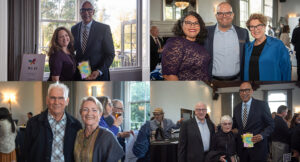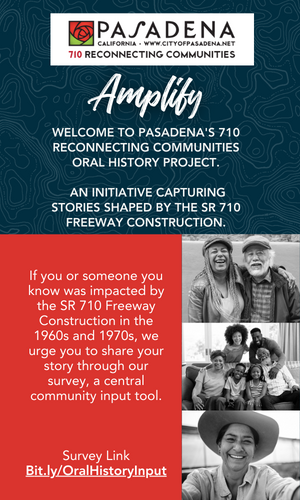“Exhibit A” is an ongoing webcast series from the Pasadena law firm of Donald P. Schweitzer. In his latest interview, this time on Zoom, Schweitzer talks to three of his newest attorneys about moving from a big law school to a specialty law firm.
All three of his newest attorneys—Mane Hakobyan, Mane Khachatryan, and Brooke Mulligan—attended USC’s Gould Law School, and obviously chose to seek work at a specialized family law firm.
“One of the reasons why I selected to go to USC,” began Hakobyan, “is that it’s known for having such a huge network of alumni and people who just support each other. And that’s actually how most of us found our jobs. I think that that’s one of the very, very best things about USC.
Hakobyan continued, “I wasn’t really sure about what I wanted to do or what area of law I wanted to go into. As I’m sure many law students can agree. It’s you, you don’t really know what you want to get into. But she noted that USC is strong on helping students find job placements.
As Schweitzer recalled his favorite movie, the 90s film, “The Firm,” he said that early in the film, the character, played by Tom Cruise, who attends Harvard, is wined and dined by a number of major law firms, and asked Khachtryan whether that experience was true for her.
“One of the things about going to a top 20 school,” she responded in agreement, “is you get a lot of those advantages where employers automatically may want to contact you, or you can contact the employer yourself.
“So a lot of times if you’re interested in whatever area, your career counselor will find an alumnus at that firm and you can just reach out, “Can I get coffee sometime with you?’ And I’ve never had somebody say no to me. I’ve never had an alumni not want to sit down and talk to me or give me advice if they couldn’t meet me in person.”
Schweitzer then asked Mulligan whether students from a large law school enter a smaller law firm without feeling like they have “underachieved.”
“I think you definitely can do it,” said Mulligan, “but you have to be firm in your choice. I came into law school knowing I wanted to do something maybe smaller or midsize, big law wasn’t going to be for me, but when on-campus interviews came around, I did feel some pressure to do the interviews just because it’s good to practice your interviews. So I did five or six on-campus interviews and then when I saw my friends getting callbacks and getting their jobs and going out to dinner, it’s hard not to feel jealous or like maybe you’ve made the wrong choice by not going forward with your interviews.
“And then your second year when everyone has a job for the summer and you don’t have that job yet,” she continued. “It’s very stressful and you definitely question yourself a lot. The security and the scheduling and the timeline that getting hired at a big law firm offers you, it’s hard to not be jealous of that.
But Mulligan noted, “I’m glad I stayed with my decision. Obviously. I’m very happy where I am, but you have to keep reminding yourself that this is what you want to do and why this is what you want to do.”
Khachatryan also pointed out that specialized small and midsize firms aren’t necessarily hiring in summer because they don’t know what they’re going to need a year and a half out.
“So you’re going to have to keep looking and keep your momentum, and interview and call alumni and ask to sit down for coffee,” she said.
She also pointed out that in talking about small law versus midsize, it’s based on the number of attorneys in the firm, not necessarily the scope of the practice.
“We have a lot of cases,” Khachatryan said. “All three, four of us here are swamped with work. So we’re not doing small scale things. I agree with Brooke. You have to be really cautious of what you want and be firm in what you want, but also talk to other attorneys. I know when I sit down and talk with my friends right now who are in big law, I’m doing a lot more substantive legal work and know a lot more about civil procedure or evidence than they do.”
Continuing the discussion, Schweitzer asked the attorneys to name particular advantages in working with smaller law firms.
“I think there’s three really big advantages to small firms,” said Mulligan. “The first is that small firms, especially in family law, they know how to have a good work-life balance.
“We’re just equipped to deal with that better,” she continued. Mulligan also noted that with a smaller law firm, “You’re it, you can’t pass work off to a junior associate.”
“You’re going to have to go to court,” she said. “There’s not enough of us that only the senior partners are going to be doing those court appearances. So, you’re learning by sort of getting thrown into the deep end in the absolute best way.”
As Schweitzer also pointed out, “Some attorneys at big law firms never get to sit first chair. Some attorneys at big law firms never see the inside of a trial,” he said before asking Hakobyan about her being in a courtroom trial in her first year of practice.
Said Hakobyan, “As much as I’m terrified of being in court and being in front of a judge and, you know, I can’t stress this enough, in your first five years, you’re gonna be nervous, and you’re going to be scared. But you know, personally I think it’s terrifying, but it’s also really exciting.”
Hakobyan pointed out that in her first year she appeared in court by herself several times, and also volunteered for other attorneys who were too busy.
As she said, with some pride, “That feeling you get after, your case is called and you make your argument and even if you don’t win, I think that feeling you get when you’re driving back to the office, nothing compares to that.”
“I think it’s such a wonderful, fulfilling feeling knowing you did your best to help your client,” she said.
Hakobyan added, “I don’t really know if you could win or lose a trial or hearing just because it’s such a different field and, there’s really no clear winner or loser, but my client was happy and I remember that she, after we were done, she was like, ‘Can I give you a hug? You know, I’m so happy.’
“And she was crying, and that was truly one of the best memories from my first year of practice. Anytime I’m stressed right now or I’m overwhelmed, I always think back to that.”
Khachatryan also opined that the practice of family law is “never boring.”
“And, she continued, “unlike other areas of law where maybe, you know, one thing and one thing really well and family law, that just doesn’t cut it, you can’t just say, Oh, I know the code. I know the family law code, you have to know civil procedure really well. You need to know evidence really well.
“Not only that,” she said, “you need to know bankruptcy law sometimes, and taxes, and how to read taxes, and how to sometimes do accounting work and you can’t just say, ‘I know what this code says and I have the law and I have the facts and I’m going to plug and chug and come out with a conclusion that’s going to win the court cause that’s not going to cut it.”
As she stressed again, “It’s never boring, and the facts are never boring. I mean, sometimes something happens and your client shares something, it changes the whole strategy of your case.”
But as she also noted, “Your case is your case. So you’re doing the research, you’re writing the memo, you’re talking to the client and interviewing the client and then you’re doing the paperwork. And if you don’t know something, our firm is so good at helping you out, but you know, it’s your baby and you get to do this.”
Khachatryan also recalled a defining moment early in her career.
She had not yet appeared before a judge, but found herself involved in a kidnapping case, where one of the spouses had kidnapped the child away.
“We met with the client Monday, and we were in court on Wednesday, getting this motion, and I think it was maybe a month after I had passed the bar. So I was still very, I mean, I’m still scared. I think I’ll be scared for like six years,” she laughed.
“But I was very nervous,” she recalled, “because now it’s like everything that I write goes to the judge and the judge reads it and, ‘Oh my God, what if I messed up?’
“And the judge actually granted our motion to get the district attorney involved and get the child back,” she said. “And I remember staring at the signature of the judge, thinking, ‘I wrote this on Monday afternoon and something that I wrote actually had an effect,’ and the client was crying, and I kind of felt emotional.
“That’s the best part,” she said. “It’s so fulfilling because what you’re doing has an immediate effect. It doesn’t get filed into some folder that nobody reads or maybe somebody reads, but it’s supercritical what you do and it affects people’s lives. All of that has been really fulfilling.”
The Law Offices of Donald P. Schweitzer are at 201 S Lake Ave #800, Pasadena, CA . (626) 683-8113








